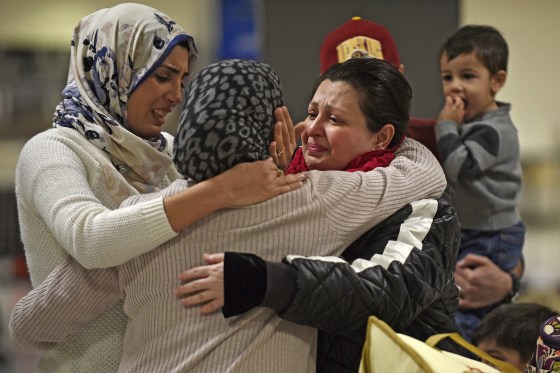WASHINGTON — The U.S. Supreme Court agreed Monday to maintain President Trump's temporary ban on travel to America by refugees.
The court acted after the Trump administration urged the court to act quickly to keep the refugee ban in place. But the government gave up fighting over whether grandmothers and other relatives should also be subject to the ban.
A federal appeals court ruled last week that refugees must be given an exception to the president's executive order if a U.S.-based resettlement agency had agreed to help them. In its emergency motion Monday, the government said the ruling, which was to take affect just before noon Tuesday, would essentially gut the travel ban's application to refugees worldwide.
In June, the Supreme Court said the travel ban could not be applied against refugees who had "a bona fide relationship with a person or entity in the United States." Resettlement agencies do not deal with refugees directly until they get here, the government said in its latest filing.
The resettlement agencies have agreements only with the federal government, which, in turn, deals with the refugees.
"An assurance agreement does not create any agreement whatsoever with the refugee," the Justice Department said.
If the appeals court ruling takes effect, it could apply to nearly 24,000 refugees. Monday's Supreme Court order said it would keep the appeals court ruling on hold until it decides what to do after receiving a response from groups challenging the restriction.
But the administration chose not to fight another part of last week's appeals court ruling, which expanded the types of relatives of Americans who are granted an exception from the executive order's ban on issuing visas to applicants from Iran, Libya, Somalia, Sudan, Syria, and Yemen.
In June the government said only parents, parents-in-law, spouses, fiancés, children, and children-in-law of Americans could get visas during the 90 days while the ban is in place, but not grandparents, aunts, uncles, cousins, nieces, nephews, and siblings-in-law.
The appeals court said the government offered no persuasive reason for making that distinction. It ruled that the entire list of relatives should be exempt from the travel ban.
As this latest skirmish played out, both the Trump administration and groups challenging the travel ban were preparing for a Supreme Court showdown October 10 on whether the president had the authority to impose his executive order in the first place.
And because the visa ban expires in late September, and the refugee ban lapses in late October, the entire case could collapse before the justices hear courtroom argument.

